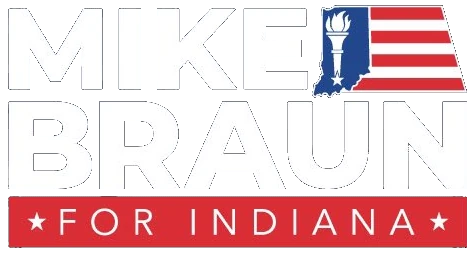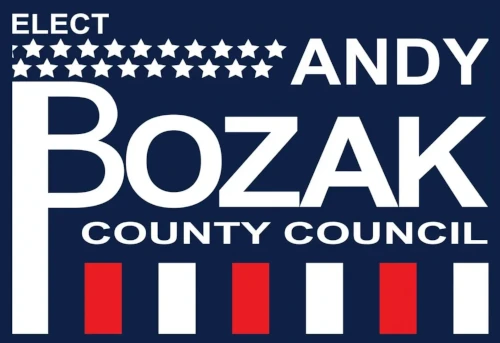What Kind of Conservative Am I?
A few weeks ago, Travis and I were talking about politics and marketing and he asked me, "What kind of conservative would you consider yourself?" Travis had been a fan of the term "Common Sense Conservative" but Glenn Beck kind of took that phrase for himself and ruined it for everyone else.
Needless to say, I'm not your standard, cookie cutter model Republican or conservative. I enjoy swearing, crude humor, and (perhaps for those reasons) I enjoy the company of liberals. Although I agree with the Republican Platform on many domestic issues, I side with the liberals on matters of Network Neutrality for the internet and my views on gay marriage are a sort of libertarian hybrid of my disapproval of gay marriage itself but support of a person's right to privacy and, more importantly (in my book at least), the pursuit of happiness.
Instead of trying to find some sort of consensus among the majority of issues, I instead analyzed the principles behind the forming of my political opinions.
I told Travis, "I consider myself a consistent conservative."
Now, this term can be understood in one of at least two ways. The first is that I am consistently conservative. But as stated above and as many of you have read in the previous weeks, months, and years - I'm not consistently conservative. In fact, I would argue that it is impossible to be consistently conservative because the definition of what it means to be a conservative is subject to opinion. For example, if you were to ask an Evangelical Christian if Mike Huckabee was a conservative, the odds are very good that he or she would say "yes." Ask that same question to a supporter of Fred Thompson, Ron Paul, or Mitt Romney and the answer would be "no."
Why the discrepancy? Because the political values of Thompson, Paul, and Romney are based more on economic and government considerations whereas Huckabee's are based more on his religious considerations. This is reflected in their policies. Using Ron Paul for example (only because Romney was a hypocrite and Thompson stuttered too much for anyone to understand him), Ron Paul wants to drastically downsize the size of the government and cut a tremendous amount of spending, as a result, he wants us to stop meddling in international geopolitics. When it comes to Israel, it would be a shock if Paul even cared to waste tax dollars to shelter Palestinian and Israeli leaders at Camp David for sure-fire peace talks. Mike Huckabee, on the other hand, looks at the Bible and sees the justification for a forced march of millions of Palestinian Muslims and Christians out of their homes to other parts of the middle east, in what would be the greatest humanitarian disaster in decades. For Huckabee, kicking civilians out of their homes to fulfill what he perceives as the "Word of God" would be the most conservative position he could possibly take... aside from a mass execution perhaps, but that only makes Huckabee a compassionate conservative in the minds of people like him. For Ron Paul, the amount of resources, economic and political capital, and US tax dollars that would take would be unforgivably liberal and big government.
For me, when it comes to Israel Policy, I don't look at the Holy Bible (or the Koran if you're the idiot that called me a "Muslim" yesterday) or look exclusively at the political and economic ramifications in domestic politics. Instead, ask the question here, "What values does the United States of America stand for and how have we used those values successfully in the past to resolve similar situations." This is an important two-part question because America has too often tried to solve problems without first reflecting upon its values.
The founding fathers saw to it that our national values were expressed in secular terms backed by the anonymous "creator." So right here, the fact that the Israelis are Jewish and the Palestinians are Muslims and Catholic and Orthodox Christians is no longer relevant. With all men being created equal, both the Palestinians and Israelis have equal worth as human beings. The founding fathers also had a strong support for democratic values, so that tells me that the Palestinians and Israelis both should have the right to vote for their leaders. Currently, the Israelis are denying the Palestinians the right to vote to elect the leaders who rule the land they live on. I see that as a problem. The secular terminology of the founding fathers also illustrates time and again that the founding fathers were men who held the rule of law pretty high on the pedestal. Therefore, it is important to look at the laws governing the Israeli-Palestinian situation and according to the Geneva Conventions, the Israelis are in violation of international law. Because Israel willingly signed onto the Geneva Conventions, it is a law they must obey and be held accountable to. The fact that they aren't is a problem. The founding fathers also believed a people should be able to defend themselves, as a result - they held the Constitutional Convention to create a more centralized government better able to protect the people and simultaneously gave the people the right to bear arms. Therefore, I believe that the Israeli demands that the Palestinians not be allowed to have a military in an eventual state are unethical according to our American Values. Likewise, the Founding Fathers went to extreme measures in the early years of this country to protect our economic rights and natural resources from the British. Therefore, it would be wrong to allow Israel to steal water from an eventual Palestinian State and simultaneously deny Palestine access to that water.
Now, a radical Ron Pauler who doesn't think we should be involved international affairs like this is bound to criticize, "No, the Founding Fathers didn't say anything about governing other people. We shouldn't be involved in their mess."
I disagree. In the Declaration of Independence, the founding fathers declared that they "...hold these truths to be self evident; that all men are created equal," and, "that they are endowed by their Creator with certain unalienable Rights." The manifest destiny (which Paulers would have hated) actually fostered their attitude that somehow, we're more deserving of the rights that we have than the other people of the world. Likely because "we earned it," they might say. However, we got incredibly lucky. We had help from Germans and the French really saved our necks in the American Revolution. Geographically speaking as well, it was incredibly difficult for the British to fight a war against soldiers led by former British officers and assisted by the French an ocean away in the New World. The Irish had been fighting for independence from the British for centuries and it wasn't until the end of the First World War that they were finally able to secure it.
Now, we don't have the resources to liberate the entire world from oppression, but if we did, I would argue that would be our responsibility. As free men, it is a sin conscience if we have the opportunity to save our brothers from tyranny but stand idly by doing nothing. Again, I stress that we can't always throw our political, economic, or military weight behind every cause to drive our values home. HOWEVER, it is important that we never throw those things around to support a "lesser of two evils." Because what's bound to happen then is that our lesser evil will be victorious and, without any further need for US support, become a greater evil. Not unlike Saddam Hussein or Osama bin Laden.
This is why it's important to be consistent. Because of our failure to do this in the past, it creates more problems. In Iran for example, many people blame the United States for the rise of the Ayatollah and his regime. As a result, if the United States gets involved in an attempt to prop up a new regime, the people will reject the new regime because it's been tainted by the United States. Had we remained true to our values during the Carter Administration, we may have a functioning and legitimate democracy in Iran today with very strong US-Iranian relations.
Now, this has been applied to international politics, but it applies equally well to domestic politics as well. I believe communication is an important part of a democracy, thus it is important that our network neutrality be protected from both the Internet Service Providers (ISP) and the Federal Government. Thus I support legislation to stop the ISPs from creating a tiered internet while simultaneously opposing legislation that gives the President the right to declare a cyber-emergency and flip a "kill switch" to literally turn off the Internet for any individual or the entire country (here's video of my speech on this issue).
My belief in the importance of the rule of law also means I'm opposed to amnesty for illegal aliens in this country and I support MUCH tougher border security laws. However, I want more people to have the ability to apply for US Citizenship because the more people there are in this country, the more ideas we have to communicate about with one other and the more our democracy can flourish.
I believe every life is important (it's the first of Jefferson's "inalienable rights") and although I only support a woman having an abortion if the mother's health is in jeopardy, I'd put my name on anything that I thought would save just a single human life in the womb because I believe the value of the individual is equal to the value of the group. (When the founding fathers used the term "the People" they meant a collective of individuals)
My opposition to homosexuality is based almost entirely on my Catholic faith (the rest of it is based on me just finding it creepy). However, my religion is MY religion and not that of other people. And in a country where religious freedom was among the first rights amended to the US Constitution, it is important that none of us try to use our individual religions to politically govern the behavior of our fellow citizens.
The list of examples goes on and on, but this post is quickly reaching 2,000 words and that's insanely longer than I typically like my posts to end at.
The reason I've shared this with you is so you can more accurately figure out why I take some of the seemingly unusual stands that I do. Since I began writing on this website, I've confused a lot of people because I don't take my talking points from Sean Hannity and Rush Limbaugh. Then, when I don't agree with them, readers and web surfers get frustrated because I don't repeat every word that comes out of their mouths. As a result, if I don't agree with Rush Limbaugh, Sean Hannity, and Glenn Beck - they come to the conclusion that I must be a "left liberal" or a "Muslim."
While a lot of people would prefer just to stay quiet about their disagreements, I'm very outspoken about mine. And because I have convictions in my positions strengthened by other issues my consistency has led me right on; I refuse to be intimidated.








